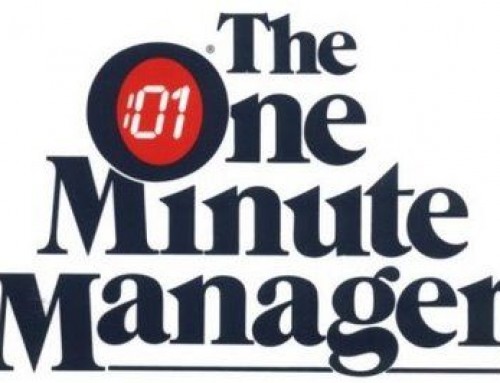How To Create A Loyal Following Out Of Your Staff
“Lack of loyalty is one of the major causes of failure in every walk of life” – Napoleon Hill
With the recent recession, many employees found themselves out in the cold and out of a job. Staff loyalty was not at the top of most employers’ list of concerns because after all, if someone wasn’t a good fit for the company, most organisations could afford to lose a little extra slack. However, with many businesses now recovering from last year’s financial mayhem, how to attract and keep the right kind of staff is again becoming a consideration.
If anything, workers are now more loyal than ever, having seen their peers be cast adrift on 2009’s sea of unemployment. Loyalty has seen some shifts however, from allegiance to the ‘company’ as an entity, now being replaced with a more horizontal loyalty. In Daniel Pink’s new book, ‘Drive: The Surprising Truth About What Motivates Us’ the author explains that while in the past the company was on top and provided security down to the individual, people are now more loyal to their colleagues and projects.
By this logic, you should be able to put people in a team and they’ll develop loyalty. I’ve seen this happen in our own workplace here – our team gets on very well and hence there is a shared sense of loyalty. Should one employee fall down everyone feels the effects and colleagues are more than willing to help one another out. In our workplace you’ll often see everyone pitching in to get a job done or see staff from different departments work together at short notice to effect a positive outcome on a last minute project.
If you can create this kind of environment, it spells good things for your bottom line and staff turnover. To achieve this end, there are a number of little things you can do to help foster stronger and more productive relationships with and between your employees.
Here are a few:
Conduct a team ‘health check’
Sounds elementary right? But when was the last time you actively sought feedback from your employees as to their satisfaction in their jobs. A simple anonymous questionnaire can really work wonders for this. For example, you might ask:
- Do you fully understand where you fit in with the company’s overall direction?
- Do you feel like you have an active role to play at work, or do you feel you’re just collecting a pay cheque?
- Where would you like to be in 2 years time?
- What do you like most/least about your job?
- What would you most like to learn?
- Do you prefer financial or other rewards (e.g. verbal praise, a more leadership oriented role) in return for a job well done?
Improve every role
How do you make all of your roles great? Well, while individual preferences may vary, there are some standard attributes most workers will hope to have included in their roles, such as: variety in tasks, friendships with colleagues, fair decision making processes and procedures, equality between effort exerted and reward offered and a certain degree of autonomy (i.e. no micro management).
These factors can be worked into most roles, enabling you to offer employees a position that uses their unique talents and skills, while also compensating them appropriately – be it financial or otherwise. Consider Google that runs 11 free gourmet cafeterias at its Mountain View, California, headquarters and offers all its employees free gourmet meals. Those kind of extra perks really show employees you care and you’re doing your best to improve the quality of what they receive as part of their role. Everyone wants to feel as if their work has meaning and when they do, this kills any ‘just collecting a pay cheque’ sentiments that may exist in the ranks.
Make the mundane, magic
Now, not all roles in your company are the most stimulating and even at the top levels, an executive that knows their role inside and out will still have times when they feel very uninspired by simply ‘going through the motions’. How to tackle the drag of monotony? Think outside the square. Cadbury recently upped the ante in their leadership program to get senior managers involved with charity projects. James Longwell, Cadbury’s global learning and development director said, “Those who’ve done the course have a hugely increased connection to the company”. As an added extra, he also says that the program gives junior staff something to which they can aspire. This is a good example of how loyalty can’t always be bought with financial incentives.
Move with the times
Being flexible is so important because just as a businesses’ needs change, so do the employees’. You need to be flexible to explore new options – options that may ultimately be more profitable for you. For example, being understanding of your young parents’ needs to drop children off and pick them up by approving flexi-time or the ability to start at 10am and finish at 6pm goes a long way toward improving productivity and loyalty. Changing company policies to incorporate individual wants and needs doesn’t necessarily sound like the standard corporate thing to do, but it demonstrates you care about your workers, which in turn creates a welcoming, feel good factor to come into work to.
American financial services company, Capital One, are right on the ball with flexibility, allowing employees to set their own schedules and work from booths, couches, quiet zones, even their cars. All staff are kitted out with an iPod, blackberry and laptop so they can work at home before their kids go to school, or even in the dentist’s waiting room. Employees at Capital One are so pleased with their flexible working arrangement, the company has earned a place in the Fortune 500’s, Top 100 Companies To Work For survey.
Look to the future
If an employee has a career goal that means they need to leave your firm, gain experience, then come back – isn’t that a smart thing to encourage? Microsoft thought so – so they created an online alumni network to allow former colleagues to keep in contact with current employees. The result? A ‘boomerang’ effect where up-skilled employees requested to rejoin the company, bringing back all their valuable experience and more! The reality is, many people will leave their jobs, no matter how much they like their team etc, especially if they have a career goal in mind. You can capitalise on this however by working with them to map a path that would welcome them back into a more senior role after gaining the experience they aspire to.
Say ‘Thank You!’
How easy is it to recognize someone for a job well done? Pretty darn hard if you’re like most of the employers I’ve come across in my time. Why is it so hard for some managers to say ‘thanks’ for helping out or staying late? I’ve personally never understood it.
Remember though, specific, personal praise goes a lot further than generalized, ‘great job team’ remarks. Instead, thank each team member separately and personally, for example, “Thank you for staying late to complete that PowerPoint presentation for the conference Janet. It really helped us out.” Showing respect and appropriate levels of gratitude are easy and inexpensive ways to keep an employee loyal. Remember, we’re living in a time of instant gratification, so those ‘on the spot’ genuine ‘thanks’ will give employees the motivation to keep up the good work.
Don’t keep people in the dark
As a manager or employer you need to be a ‘big picture’ thinker and include your whole team in the vision for your company’s future, as well as give them reasons why their role is important in seeing that vision realized.
As mentioned before, staff need to feel that their work is important and has a purpose, for this, they will ultimately look to you to provide information and create excitement about what the company is doing. For example, when a team has finished a project, keep them in the loop about what will happen next to the fruits of their labour and update them on how they’ve affected outcomes in the business. It’s not hard and it doesn’t take much time, but it speaks volumes to a staff member about how important they are in the scheme of things, even if their contribution is not immediately able to be correlated to specific sales/new leads/market share etc.
Finally, realize that some turnover is inevitable. You can’t keep everyone happy as an employer, but you can do some small things such as those listed above that are inexpensive and effective in increasing an employee’s loyalty to you. You don’t need to transform into a Google overnight, offering free meals, break out areas stocked with all manner of games, child care, massage chairs, lap pools, indoor rock climbing, onsite doctors and more – (Google’s stock is over $480, after all, so they can afford those kind of indulgences) – instead, just take small steps and build them up over time.


